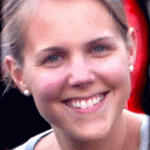International Student Placement 2012
 Karibu Kenya…
Karibu Kenya…
Karibu = welcome! Welcomed is exactly how I felt when I arrived in Kenya. As a recipient of the Chris Gandy International Outreach Award I had the opportunity to complete my 10 week unit 9 placement in Kenya, Africa. My clinical experience in Kenya was very diverse, ranging from acute care in a private hospital in Nairobi to language assessments in a small school in Mbita (a rural village on Lake Victoria). Each day was a new experience and I never knew what to expect. The official languages in Kenya are English and Kiswahili however; most people also speak their tribal mother tongue. Most school-aged children I worked with were tri-lingual, pretty impressive if you ask me! Kenya is culturally rich and I learnt a lot about the culture and tribal customs. I also learnt about how SLP’s are trained in the UK and the United States (from my two clinical educators) and about Hindu culture through living with my Indian host family. During my experience I learnt about the many opportunities for SLP’s to work abroad and the dire need for SLP services in North East Africa.
In Nairobi I spent the majority of my time at the Aga Khan University Hospital. The SLP department at AKUH services both in-patients and out-patients, and it was both challenging and eye opening. Nairobi is a major service area for people in East Africa so I had patients from across Kenya as well as Tanzania, Rwanda, Congo, Somalia and Uganda. I met many patients with interesting and touching stories. Like a widow with ten children who saved for over two years to pay for a speech assessment for his 11 year old son who had lost his voice. Luckily because I was a student, working quite independently in Unit 9, I was able to provide the boy with several free sessions. To know that this family had saved for over two years and travelled over two hours, to see one of only eight SLP’s in the country, demonstrated to me the desperate need for more services.
In Kenya there are many misconceptions about communication disorders and disability in general. Many people, including teachers and other health care professionals, associate physical disability with cognitive disability and often underestimate capabilities of people with disabilities. There even tribes that believe disabilities stem from evil spirits and often blame parents for their child’s disability. I will never forget when I helped to open the eyes of a family whose son was locked-in. The 12 year old boy had suffered a brain bleed and was left paralyzed with only eye movements. His mother and older brother thought he was brain dead. Through using some low-tech alternative and augmentative communication devices (alphabet board and simple pictures) I was able to show this family that he could communicate. He was able to tell his brother he wanted to listen to music and was able to tell his mom that he loved her. Because of the common misconceptions in Kenya and because of the assumptions made by the family, this experience was particularly special for me.
After my time in Nairobi I travelled west where I worked at Christ Gift Academy, an elementary school for orphaned children in the fishing village of Mbita. During this experience I assessed students (kindergarten to grade 8) identified by their teachers as having difficulties with speech and/or language. Having only very limited resources and the challenge of making assessments culturally appropriate I needed to problem solve and think creatively. My favourite experiences were working with the adorable kids in the kindergarten class and preforming informal language assessments using only rocks, a stick, and a plastic cup! The school was so thankful for the services my clinical educator and I were able to provide for them that they offered us a chicken (a common Luo tribe tradition). Not your typical thank you gift, which only added to my many other unique experiences.
I then travelled to the opposite side of the country to Mombasa, the second largest city in Kenya on the Indian Ocean Coast. In Mombasa I helped to provide services at three different schools for children with special needs. I spent the majority of my time educating teachers and other therapists on how they can assist children with speech and language development. It was fun pretending to be a child and have the local teachers demonstrate how to incorporate language into play activities.
Through my experiences in Kenya I gained a better understanding of how culture can deeply impact the way in which a person communicates but that everyone smiles in the same language. In Kenya I developed skills in working with interpreters, with patients whose first language is not English and in assessing/treating patients with limited resources. The time I spent in Kenya was unlike any other experience I’ve ever had. I would have never thought I’d see goats, chickens and monkeys while walking to my placement sites. I learnt how to morph into a new culture while still staying independent and true to myself. The life skills I’ve gained will help me in the challenges I will face as a new graduate working in Canada.
Since I’ve been back home friends and family members have asked me if I would go back. I respond with “Absolutely yes, in a heartbeat”. In the future I hope to return to Kenya to assist the local speech therapists and rehabilitation professionals and I would strongly encourage other students and clinicians to work in Kenya or in other countries abroad. I am grateful to Chris Gandy, scholarship donor, and the University of Toronto for this life changing experience.
Carlee Juurakko